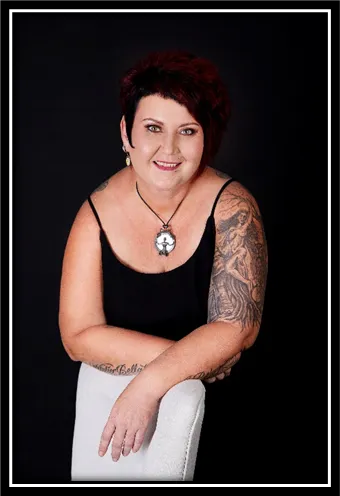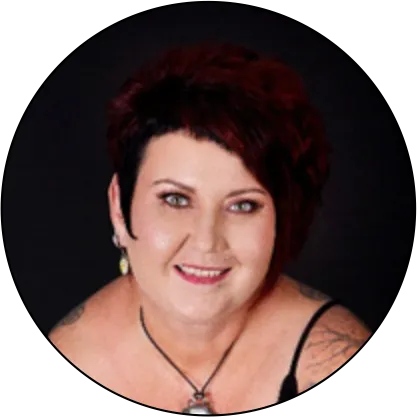
POST TRAUMATIC STRESS CAN AFFECT MORE THAN JUST RETURNED SERVICE MEMBERS


POST TRAUMATIC STRESS CAN AFFECT
MORE THAN JUST RETURNED SERVICE MEMBERS
C
OMPLEX Post Traumatic Stress Syndrome (C-PTSD) affects the nervous system where it becomes “stuck” in a state of constant alert. Often comfort and support can help
overcome feelings of hopelessness, grief, and despair.
It’s important we understand Complex Post Traumatic Stress Syndrome (C-PTSD) to our returned Servicemen and women. It is also experienced within the home experienced with abuse survivors, those injured in health, bullying, workplace incidents, witnessing a traumatic event or events that threaten their life.
C-PTSD is a disorder in a person that has failed to recover from experiencing or witnessing a traumatic event resulting in the detriment of safety or other valued themes.
C-PTSD can last months, even years, with the person being set off by triggers such that in turn has them reliving terrifying memories.
People that have C-PTSD may experience intense emotional and physical reactions.
Someone who has C-PTSD may include flashbacks, nightmares, or even a frozen situation in fear of experiencing a trigger, anxiety, or a depressive mood.
C-PTSD is a silent mental disorder that goes unnoticed in our communities as it is triggered in public. Similarly, triggers do not have to be external. Internal feelings and sensations can also trigger C-PTSD symptoms.
Examples of possible external C-PTSD triggers:
Sights, colors, or smells associated with the trauma.
People, locations, or things that recall the trauma.
Significant dates or times, incidents or anniversaries.
Situations that feel confining.
Relationships, family, school, work, or money pressures or arguments.
Examples of possible internal C-PTSD triggers:
Physical discomfort, such as hunger, thirst, fatigue, sickness, sexual frustration.
Strong emotions, feeling helpless, out of control, or trapped.
Feelings of vulnerability.
There are organisations within the Mackay region that can assist those who are with C-PTSD along with their families and friends.
The Mackay Private Hospital Mental Fitness has a day program for trauma recovery.
This is a resource for those who have experienced traumatic events such as sexual assault, domestic violence, bullying, vehicle accidents, war combat, witnessing a traumatic event or events that threaten them.
It enhances the person’s capacity to understand the impacts of trauma by being more aware of symptoms which affect your life more often than others. Other pressure uses that can be associated via the internet or alternatively by phone also.
Below there are promoting awareness and understanding to reduce the associated stigma. www.beyondblue.org.au or call 1300 22 4636.
Black Dog Institute is an important website where persons at risk of mental health awareness: www.blackdoginstitute.org.au
Lifeline Australia 13 11 14
Provides confidential 24-hour crisis support and suicide prevention services. It also provides support and suicide prevention information, and referral service, helping men to deal with relationship, family and financial concerns. Alternatively, contact 1300 367 798.
Head to Health is the digital mental health gateway funded by the Australian Government.
Head to Health brings together apps, online programs, online forums, and phone services as well as a range of digital information resources.
Some of Australia’s most trusted mental health organisations.
If you are trying to improve your own trauma or know someone that has PTSD issues try to support them.
Unfortunately, when we assume that the person experiencing an episode has C-PTSD you do not know what they have suffered and for many triggers can last years afterwards. Regardless of the experience, promoting awareness is the key to educating and assisting.
POST TRAUMATIC STRESS CAN AFFECT
MORE THAN JUST RETURNED SERVICE MEMBERS


C
OMPLEX Post Traumatic Stress Syndrome (C-PTSD) affects the nervous system where it becomes “stuck” in a state of constant alert.
Often comfort and support can help overcome feelings of hopelessness, grief, and despair.
It’s important we understand Complex Post Traumatic Stress Syndrome (C-PTSD) to our returned Servicemen and women. It is also experienced within the home experienced with abuse survivors, those injured in health, bullying, workplace incidents, witnessing a traumatic event or events that threaten their life.
C-PTSD is a disorder in a person that has failed to recover from experiencing or witnessing a traumatic event resulting in the detriment of safety or other valued themes.
C-PTSD can last months, even years, with the person being set off by triggers such that in turn has them reliving terrifying memories.
People that have C-PTSD may experience intense emotional and physical reactions.
Someone who has C-PTSD may include flashbacks, nightmares, or even a frozen situation in fear of experiencing a trigger, anxiety, or a depressive mood.
C-PTSD is a silent mental disorder that goes unnoticed in our communities as it is triggered in public. Similarly, triggers do not have to be external. Internal feelings and sensations can also trigger C-PTSD symptoms.
Examples of possible external C-PTSD triggers:
Sights, colors, or smells associated with the trauma.
People, locations, or things that recall the trauma.
Significant dates or times, incidents or anniversaries.
Situations that feel confining.
Relationships, family, school, work, or money pressures or arguments.
Examples of possible internal C-PTSD triggers:
Physical discomfort, such as hunger, thirst, fatigue, sickness, sexual frustration.
Strong emotions, feeling helpless, out of control, or trapped.
Feelings of vulnerability.
There are organisations within the Mackay region that can assist those who are with C-PTSD along with their families and friends.
The Mackay Private Hospital Mental Fitness has a day program for trauma recovery.
This is a resource for those who have experienced traumatic events such as sexual assault, domestic violence, bullying, vehicle accidents, war combat, witnessing a traumatic event or events that threaten them.
It enhances the person’s capacity to understand the impacts of trauma by being more aware of symptoms which affect your life more often than others. Other pressure uses that can be associated via the internet or alternatively by phone also.
Below there are promoting awareness and understanding to reduce the associated stigma.
www.beyondblue.org.au
or call 1300 22 4636.
Black Dog Institute is an important website where persons at risk of mental health awareness: www.blackdoginstitute.org.au
Lifeline Australia 13 11 14
Provides confidential 24-hour crisis support and suicide prevention services. It also provides support and suicide prevention information, and referral service, helping men to deal with relationship, family and financial concerns. Alternatively, contact 1300 367 798.
Head to Health is the digital mental health gateway funded by the Australian Government.
Head to Health brings together apps, online programs, online forums, and phone services as well as a range of digital information resources.
Some of Australia’s most trusted mental health organisations.
If you are trying to improve your own trauma or know someone that has PTSD issues try to support them.
Unfortunately, when we assume that the person experiencing an episode has C-PTSD you do not know what they have suffered and for many triggers can last years afterwards. Regardless of the experience, promoting awareness is the key to educating and assisting.

Reborn the Rose acknowledges Traditional Owners of the Country throughout Australia and recognises their continuing connection to lands, waters, and communities. We pay our respect to Aboriginal and Torres Strait Islander cultures and to Elders past and present.
© Copyright 2024 Reborn the Rose. All Rights Reserved.
